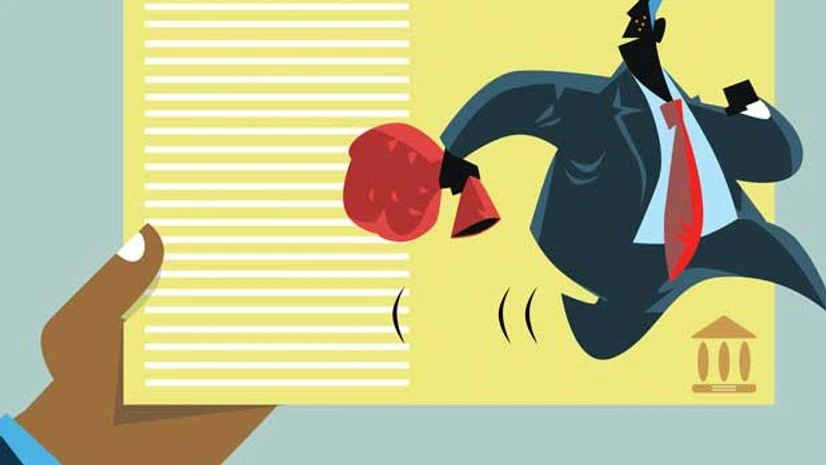The Lok Sabha on Monday passed a Bill, which provides for expeditious recovery of bad loans by banks. The Bill, passed by voice vote, also proposes to move towards online debt recovery tribunals (DRTs).
The Enforcement of Security Interest and Recovery of Debts Laws and Miscellaneous Provisions (Amendment) Bill, 2016, seeks to amend four laws -Securitisation and Reconstruction of Financial Assets and Enforcement of Security Interest Act, 2002 (Sarfaesi), Recovery of Debts due to Banks and Financial Institutions Act, 1993, Indian Stamp Act, 1899, and Depositories Act, 1996.
The Sarfaesi Act allows secured creditors to take possession over a collateral, against which a loan had been provided, upon a default in repayment. This process is undertaken with the assistance of the district magistrate, and does not require the intervention of courts or tribunals. This process will have to be completed within 30 days by the district magistrate. The Bill also empowers the district magistrate to assist banks in taking over the management of a company, in case the company is unable to repay loans. This will be done in case the banks convert their outstanding debt into equity shares, and consequently hold a stake of 51 per cent or more in the company. The legislation also proposes to empower the Reserve Bank of India (RBI) to examine the business of asset reconstruction companies (ARCs). Besides, RBI can carry out audit and inspection of these companies. In the event of these firms failing to comply, RBI can take penal action. The Bill also provides for stamp duty exemption on loans assigned by banks and financial institutions to ARCs.
More From This Section
To expedite recovery of bad loans, the Bill enables non-institutional investors to buy ARCs' security receipts. In case of corporate bond defaults, the changes will allow bond and debenture trustees to use provisions of the Sarfaesi Act as well.
| SPEEDING UP |
|
So far, only banks and financial institutions can use these rules in bond default cases.
The change might give "secure creditors" the first right to auction an asset to recover dues. This could take precedence over state laws. The amendment would also aim at reducing the number of adjournments so that litigation time is reduced.
Besides, the government is setting up a central registry for lodging records of multiple loans given to same parties.
Highlighting that the objective of the Bill is to improve the ease of doing business in the country, Finance Minister Arun Jaitley said the banks must be empowered to take effective legal action against defaulters and the insolvency law, securitisation law and DRT law are steps in that direction.
Farm land has been kept out of the purview of the Act.
Jaitley said banks would take a compassionate view on education loan defaults, although the loans would not be written off. "Write off will put banking structure into a position where banks are not able to extend loans."
Adding: "We cannot have a banking system where people take loans and do not repay."
The move assumes significance as it comes against the backdrop of liquor baron Vijay Mallya, who owes Rs 9,000 crore to banks, managing to leave the country. Jaitley said if loans are not repaid, the Centre or state Budgets will have to provide for the waiver. The FM said a large part of the Rs 8 lakh crore of stressed assets is because of discoms, which are now being addressed through the UDAY scheme.
Observing that it is important to keep units facing debt problems running in order to preserve jobs, Jaitley said RBI had taken steps to improve the situation through the corporate debt restructuring scheme.
To a member's demand of extending Sarfaesi to systematically important non-banking financial companies, Jaitley said the draft notification had already been issued and the government was waiting for stakeholders' comments before issuing the final guidelines.
Around 70,000 cases involving some Rs 5 lakh crore are pending in DRTs and the proposed amendments would facilitate expeditious disposal of recovery applications. Securitisation law enforced in 2004 significantly helped reduce NPAs from almost 13 per cent to two-three per cent, Jaitley said.

)
